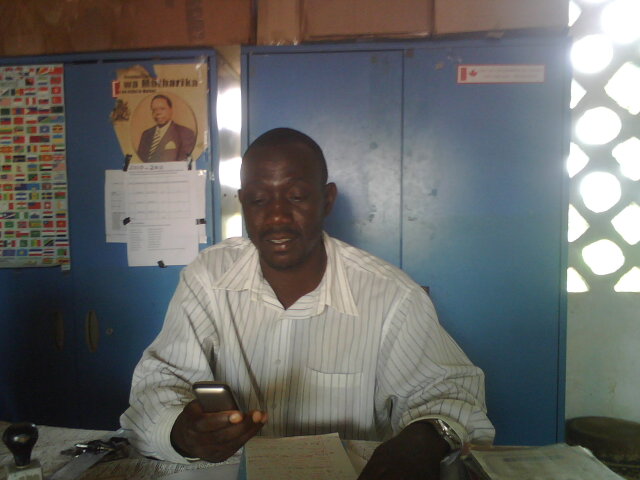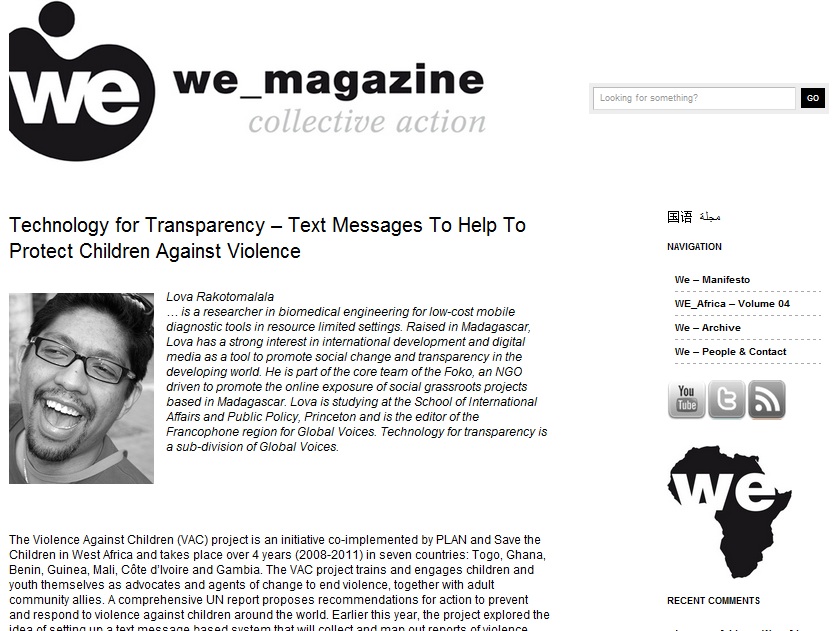This post is the latest in the FrontlineSMS Mobile Message series with National Geographic. To read a summary of the Mobile Message series click here.

In this installment of our special “Mobile Message” series, Irma F. Saligumba – Health Research and Projects Coordinator at Molave Development Foundation – talks about a project in the Philippines which aims to reduce mother and infant mortality rates, and provide education and support to expectant mothers, all through their mobile phones.
“Ma’am, I already gave birth. Thank you for the messages you sent”. This was the SMS message I received from Meriam. She is one of the 100 pregnant women who registered in November 2010 for the pilot implementation of the Mobile e-health System for Safe Motherhood Program, run by Molave Development Foundation Inc.
This program aims to support the Philippine Government in reaching towards the United Nation’s Millennium Development Goals to reduce maternal mortality ratio by three quarters by 2015.
As the Health Research and Projects Coordinator of Molave Development Foundation, Inc., I spearheaded a study on the effectiveness of using mobile phones to reach out to pregnant women to improve their maternal health.
We chose the town of Roxas, located on Mindoro Island about 400 kilometers south of Manila, for the research. Its population is about 50,000 spread across 20 villages; its Health Center has 2 physicians, 1 nurse and 8 midwives. To supplement the lack of health staff, there are 140 village health volunteers (VHV) who are trained to do most of the legwork for the midwives, and disseminate information on primary health care, maternal and child health, family planning and nutrition.
I was introduced to Meriam during a visit to her upland village. Like most of the mothers in our program, Meriam is in her mid-20′s, has some years of high school education, is unemployed, and her husband doesn’t have a regular job. Subsistence farming provides additional income, and their average monthly salary is about $150. The only means of telecommunication in their area is through mobile phones. She shares one with her husband.
In the Philippines, where nearly 40% of the population lives below the poverty line, the equity gap is stark and wide. However, the ownership of a mobile phone is one of the few things that has crossed the income divide, making telecommunication relatively affordable and more accessible in this country of 7,100 islands. There are 70 million Filipinos who have mobile phones, compared to only 7 million installed fixed phone lines.
This is the basis for developing a program that uses text messaging to inform and educate pregnant mothers on safe motherhood. Aside from its mass appeal, mobile phones provide the advantage of two-way communication. Mothers are not just passive participants receiving information, but can also ask questions or communicate their concerns if they need to.
We are using FrontlineSMS as our communications platform because it is easy to use for health workers’ with low technical know-how, it works without an Internet connection and provides a way to send SMS through pre-paid SIM cards, thus making it a low cost option. It is also vitally important that the software allows for data storage, and we have created a database of the mothers and the health workers on our on-site computer.
Prior to implementing our pilot project, we conducted various training sessions for the Health Center staff. First we provided a Basic PC Literacy Course which covered use of mouse and keyboard, familiarization with computer symbols and commands, basic computing using word processing and spreadsheets, and how to use the Internet. When they gained sufficient confidence, we then moved on to training basic FrontlineSMS skills (for the PC and mobile phone) to show staff how to use key functionality. Five health personnel were also trained on advanced FrontlineSMS, including administration, management and troubleshooting.
Meanwhile, village health volunteers were trained on how to use the mobile phone for data entry of pre- and post-natal registration, in order to register pregnant women and new mothers in the program.

With the system in place, we started sending out the messages to participants who had already registered during pre-natal checkups at the Health Center. We also worked to reach out to new pregnant women. Posters and brochures were distributed giving instructions on how to register, by sending in an SMS.
Every day for three months, these women received messages on introduction to safe pregnancy and delivery, baby’s phases of development, tips on preparing for labor, common pregnancy problems, benefits of facility-based childbirth, breastfeeding, neonatal care, and child immunization. Through this program we sent a total number of 11,100 text messages or 111 for each of the 100 women registered.
As we hoped, we received messages back from the mothers. Some expressed appreciation for the messages. Others raised serious questions regarding their pregnancy. An expectant mother named Jane inquired if using the computer is bad for the baby. Jocelyn asked what she should be feeling if the baby is due for birth. At 7-months pregnant, Rebecca wanted to know if it is normal to have swollen and painful vagina.
These questions were forwarded to their respective midwives for advice because they were better aware of their patients’ pregnancy status. The midwife’s response was sent by the system to the mother. In the case of Rebecca, she was advised to go to the hospital for evaluation. She even went as far as Manila to have better care, and she ended up staying there until she gave birth because her condition was too serious for traveling.
We are now looking into expanding the Safe Motherhood Program in other parts of the country. Our initial assessment shows that the program has influenced the parent’s decision to use a health facility instead of their home for childbirth. The system also facilitated the prompt recording of new pregnant women and post-natal reporting. This data helps midwives prepare and plan for the pre- and post-natal care activities in the village. This more efficient and interactive information management system can ultimately contribute to improved maternal care, and thus decreased mortality levels.
Mothers involved say they will recommend the Safe Motherhood Program to others. They feel assured that someone is concerned about their welfare and that there is someone they can go to if they have questions. This gives them a feeling that they are important because someone cares, and that feeling of being important strengthens their desire to take care of not only their health, but also their babies.
 Irma F. Saligumba has been the Health Research and Projects Coordinator of Molave Development Foundation, Inc. since 2007, and is Lead Researcher of Pan-Asian Collaboration for evidence-based e-Health Adoption and Application (PANACeA) Network with member countries in Central, South and Southeast Asia.
Irma F. Saligumba has been the Health Research and Projects Coordinator of Molave Development Foundation, Inc. since 2007, and is Lead Researcher of Pan-Asian Collaboration for evidence-based e-Health Adoption and Application (PANACeA) Network with member countries in Central, South and Southeast Asia.
Prior to her involvement at MDFI, she spent 4 years in Attapeu, Laos as provincial health trainer of Health Unlimited. She also served as Training Specialist for 4 years at Philippine Rural Reconstruction Movement focusing on leadership-building, gender and development, and advocacy. She is a registered nurse and earned her masters in Public Health at the University of the Philippines.



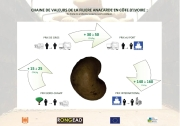









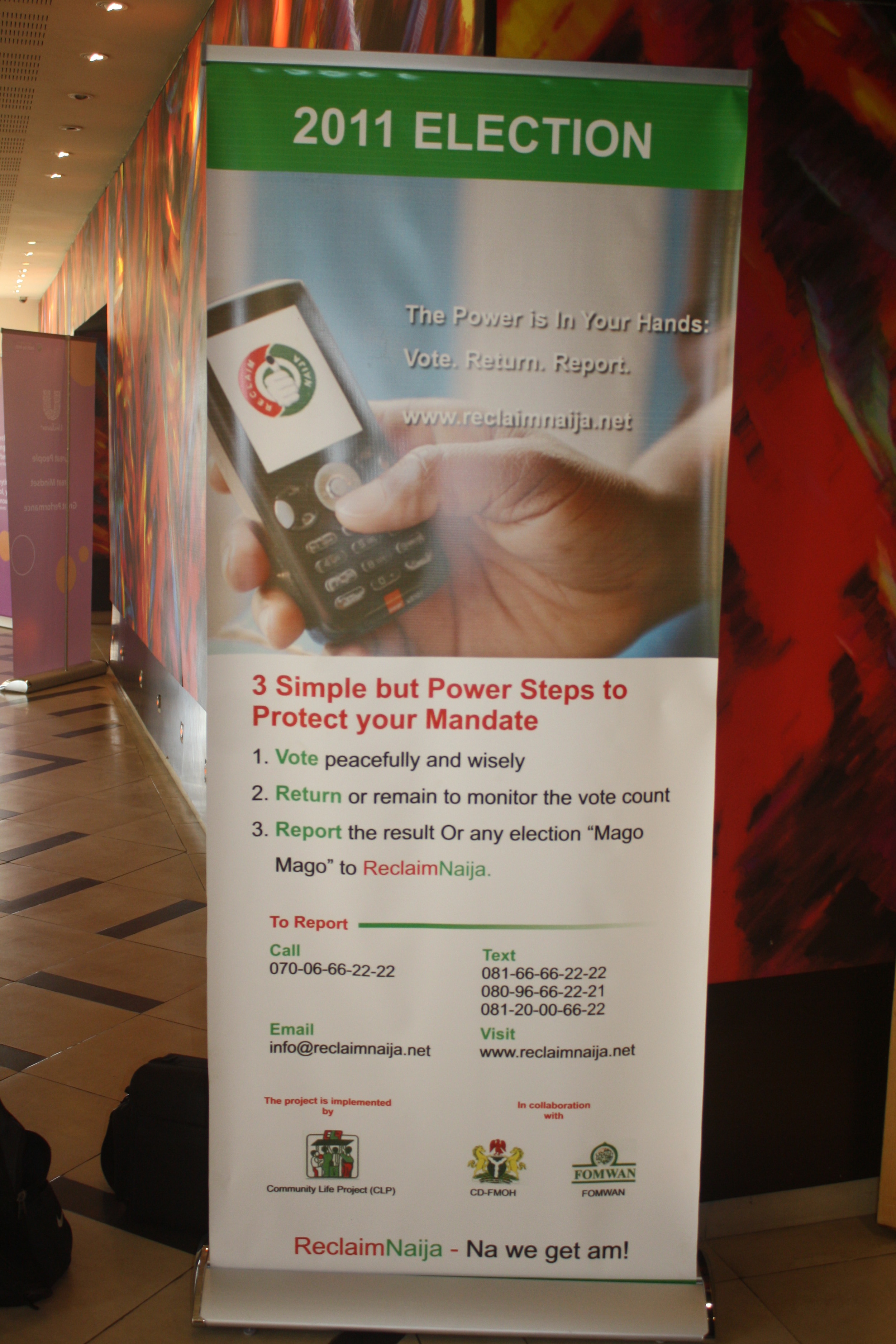
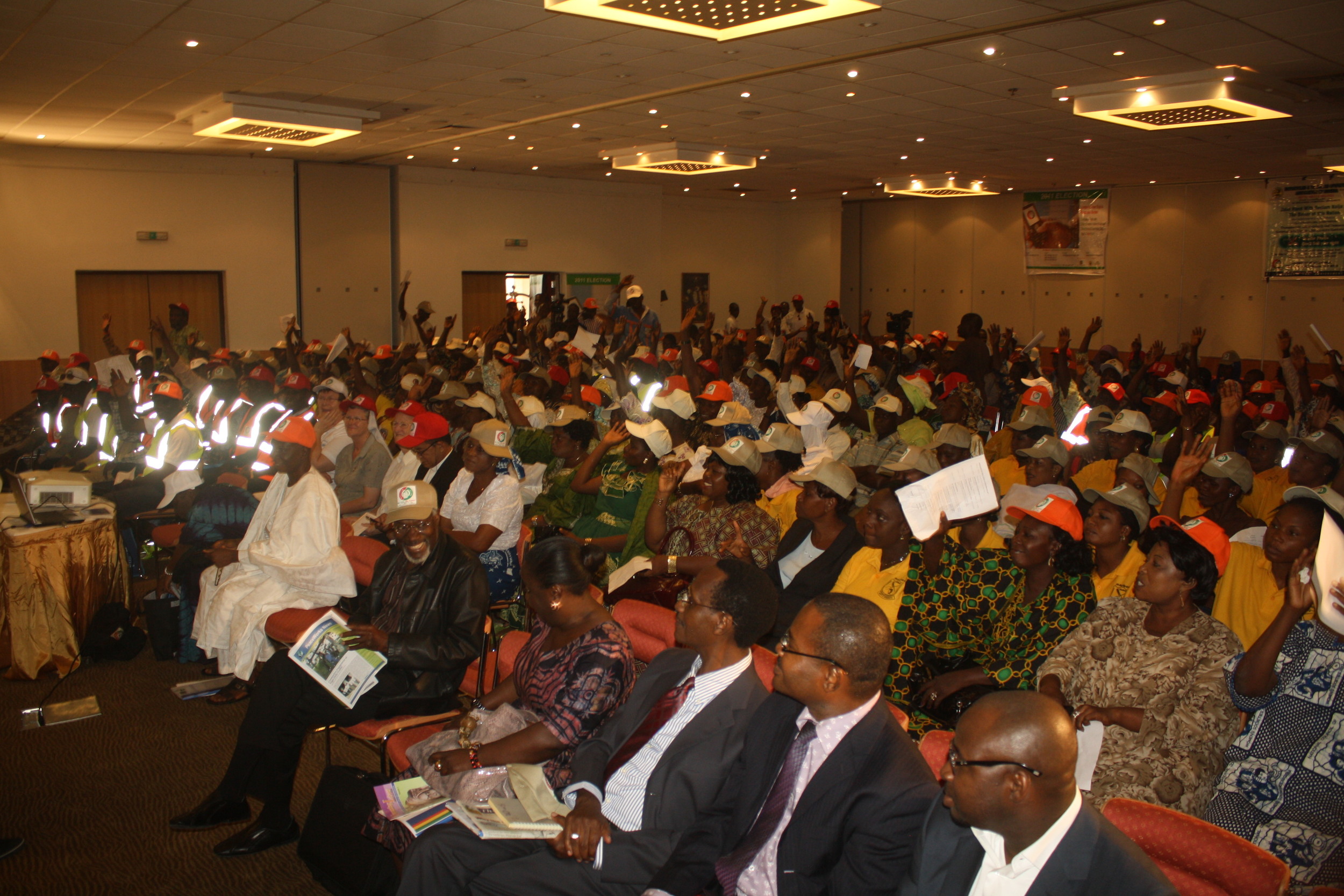




 Today, with over 500 million mobile subscribers across Africa alone, and more people around the world owning a phone than not, mobile phones seem to be everywhere,” points out FrontlineSMS founder Ken Banks in the opening post of our National Geographic
Today, with over 500 million mobile subscribers across Africa alone, and more people around the world owning a phone than not, mobile phones seem to be everywhere,” points out FrontlineSMS founder Ken Banks in the opening post of our National Geographic 




